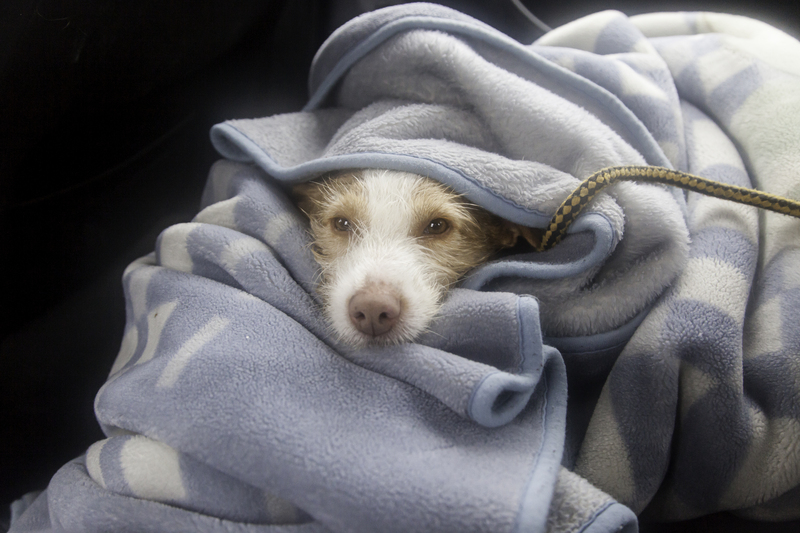How to protect your freezer when not in regular use
Posted on 01/07/2025
How to Protect Your Freezer When Not in Regular Use: Comprehensive Guide
Your freezer is a significant investment in your kitchen or utility space. If you anticipate not using it regularly--such as during a lengthy vacation, seasonal closures, or infrequent use in a second home--it's vital to ensure that your appliance remains in top condition. This article provides a detailed, step-by-step guide on how to protect your freezer when it's not in regular use, helping you to extend its life, prevent costly damage, and avoid unpleasant surprises when it comes time to use it again.

Why Should You Prepare Your Freezer for Periods of Disuse?
Many people underestimate the risks of leaving their freezer unattended for weeks or months. Unused freezers can develop issues such as mold, unpleasant odors, rust, and mechanical failures if not cared for properly. Proactively managing your freezer during periods of low or no usage protects your investment and ensures that you won't face major headaches upon your return.
The Risks of Neglecting a Freezer When Not in Use
- Mold and mildew growth due to trapped moisture
- Unwanted pests attracted by leftover food or residue
- Electrical or mechanical issues from undetected faults
- Bad odors caused by stagnant air and organic materials
- Rust, corrosion, or seal degradation from humidity
Step-by-Step Guide: How to Protect Your Freezer During Prolonged Inactivity
1. Clean the Freezer Thoroughly
The first and most crucial step in protecting your freezer when not in regular use is deep cleaning. Food particles or spills left behind can turn into breeding grounds for bacteria and mold, especially if left for weeks or months.
- Unplug the freezer before beginning any cleaning process for safety.
- Remove all the contents--discard any expired or unwanted items, and transfer any usable food to another appliance if possible.
- Take out removable shelves and drawers. Wash them with warm, soapy water. Rinse and dry thoroughly.
- Wipe down the interior with a solution of baking soda and water (1 tablespoon baking soda per quart of water). This mixture helps neutralize odors and kill microorganisms.
- Clean the door seals and gaskets with care, as they're prone to hiding grime, which can break down the seals over time.
- Dry all surfaces completely to prevent humidity buildup which leads to mildew.
2. Defrost the Freezer (If Applicable)
If you have a manual-defrost freezer, it's vital to fully defrost it before storing. Excess frost can melt and cause puddles, leading to unpleasant odors, damage, or even electrical problems if ignored.
- Turn off and unplug the freezer.
- Leave the door open and allow the ice to melt naturally. Place towels around the base to soak up any water.
- Wipe away melted water and make sure the entire interior is fully dry.
Do not use sharp objects to chip away at ice--this can damage the lining and compromise insulation.
3. Leave the Door Slightly Open
One of the best ways to protect an unused freezer is by preventing the door from closing completely. Sealed doors can trap moisture inside, creating a prime environment for mold, mildew, and foul odors.
- Place a small object (e.g., a rolled-up towel) or use a purpose-built door prop to keep the freezer door ajar.
- Ensure it's open enough for air circulation but not so much that pests can enter easily.
- If concerned about children or pets, use a safe prop or lock to prevent full closure while maintaining air flow.
4. Disconnect and Secure the Power Supply
If the freezer is to be unused for an extended period, it's usually best to unplug it entirely. This not only saves on energy costs but also eliminates risks associated with electrical malfunctions, fire, or storms.
- Turn off and unplug from the wall socket.
- Move the cord out of the way or secure it so it's not a tripping hazard.
- Some people recommend unplugging while leaving the appliance's power switch in the off position for an extra margin of safety.
5. Position the Freezer in a Safe Spot
If possible, move your unit to a dry, ventilated, and secure location. Avoid leaving it in humid garages, basements, or anywhere where temperature swings or moisture could lead to corrosion or electrical issues.
- Make sure the freezer sits on a flat, stable surface.
- Keep it away from direct sunlight or heat sources, which can cause warping or damage to plastic and seals.
- Avoid placing in places prone to flooding or leaks.
6. Protect the Exterior
The outside of your unused freezer is just as vulnerable. Dust, moisture, and accidental impacts could damage finishes, develop rust, or attract pests.
- Dust or wipe down the exterior with a damp cloth and gentle soap.
- Dry thoroughly to prevent water lines or rust.
- Place a breathable cover over the freezer, such as a cotton sheet. Avoid plastic sheets, which can trap moisture.
Extra Tips: Ensure the Longevity of Your Freezer During Non-Use
- Add moisture absorbers (like silica gel packets or open baking soda boxes) inside to keep the interior fresh and dry.
- Check periodically--even if you're away, ask a friend or neighbor to look in occasionally for signs of trouble. Catching issues early can prevent headaches.
- Secure against pests--ensure door seals are intact, and cover any vents or openings with mesh if necessary.
- Label and document--attach a note stating the last cleaning date and condition for easy recall.
SPECIAL CASES: Protecting Your Freezer When Temporarily Not in Use
1. Seasonal Unused Freezers (Vacation Homes, Seasonal Businesses)
If your freezer is in an environment that is only used for part of the year, such as a lake house or holiday rental, follow the same cleaning, defrosting, and unplugging procedures. Add these steps:
- Use strong odor absorbers (e.g., activated charcoal) since these freezers may stay closed longer.
- On return, inspect the power cord, seals, and mechanical parts for wear or rodent damage before plugging the unit back in.
2. Freezers Not in Use But Still Plugged In
If you choose to keep the freezer running (sometimes required to maintain warranties or in commercial settings), take the following precautions:
- Set the temperature to the manufacturer's recommended idle (energy saver) setting.
- Place jugs of water inside to help regulate temperature and minimize rapid cycling.
- Inspect monthly for frost, leaks, or pests.
3. Shared Freezers in Multi-Unit Buildings
Freezers in shared spaces need extra safeguards:
- Label your unit clearly with ownership and contact details.
- Secure the door with a lock to prevent unauthorized use.

Common Questions About Protecting Your Freezer When Not in Use
Should I leave my freezer door open or closed when not in use?
Always leave the freezer door slightly open to prevent the formation of odors and mold. Use a safe prop or special door stop designed for appliances.
Is it OK to unplug a freezer for long periods?
Yes, it's generally safe and beneficial. Just ensure the freezer is cleaned, dried, and the door is left open.
How often should I check on an idle freezer?
Every 1-2 months is advisable. More frequently if the environment is humid or prone to pests.
Can I store items in my freezer when it's off?
It's best to keep the interior empty to prevent attracting pests or generating odors. If you must store anything, make sure it's non-perishable, well packaged, and cannot spoil.
Final Thoughts: Best Practices to Protect Your Freezer During Extended Downtime
Protecting your freezer when not in regular use requires just a bit of time but pays substantial dividends in preventing damage, extending appliance life, and ensuring a fresh start when you need it again. Remember:
- Unplug and clean the freezer thoroughly before downtime.
- Prop the door open for air flow.
- Use odor and moisture absorbers to maintain freshness.
- Store in a safe, dry place away from heat and moisture.
By following these steps and keeping an eye on your unused freezer, you'll ensure it remains in excellent working order--ready to serve you with efficiency and reliability when called upon. If you have any doubts or notice problems (strange smells, noises, or malfunctioning parts), contact a qualified appliance technician before resuming regular use.
Looking for more appliance care tips? Browse our website for expert advice and in-depth guides.
Latest Posts
How to protect your freezer when not in regular use
Streamline Your House Moving Experience
Piano Relocation: Challenges and When to Hire Help
Steps for a Stress-Free Bed and Mattress Move
Ultimate Checklist for Cleaning Your House Before the Big Move



